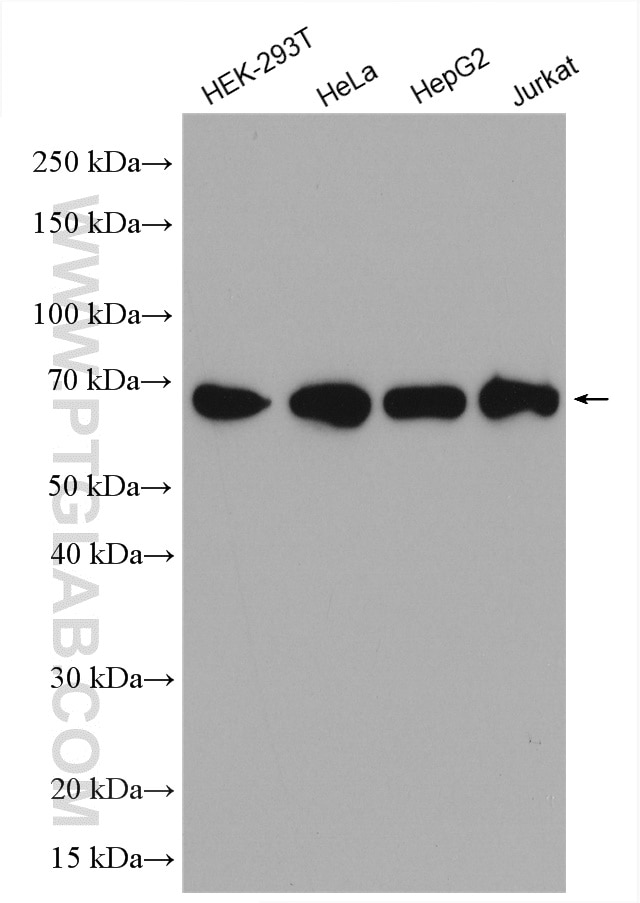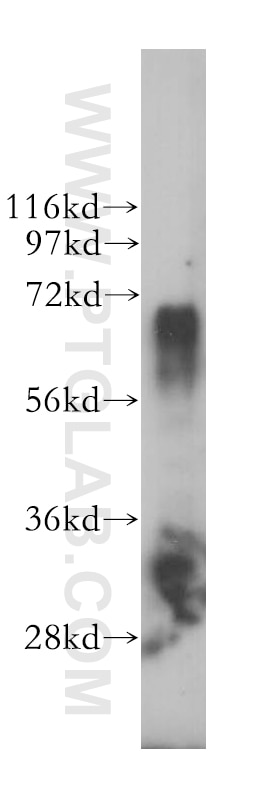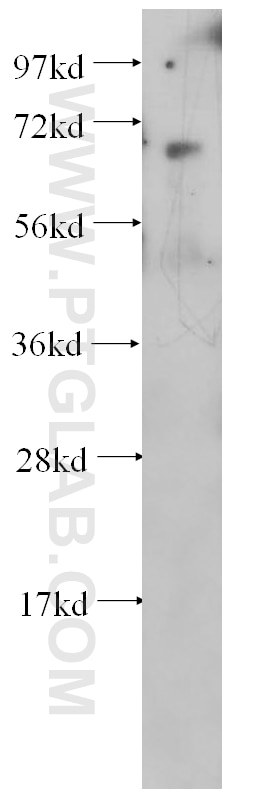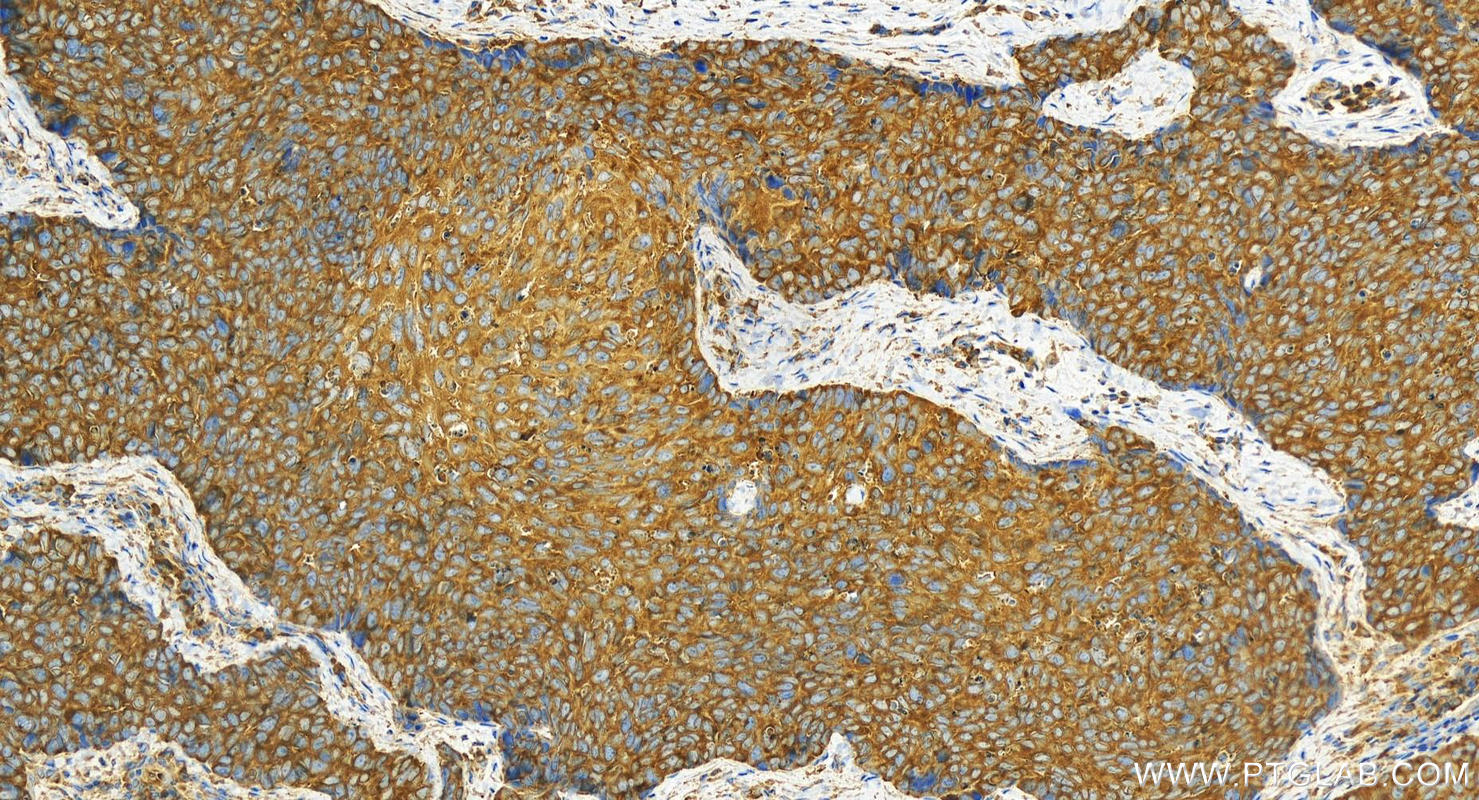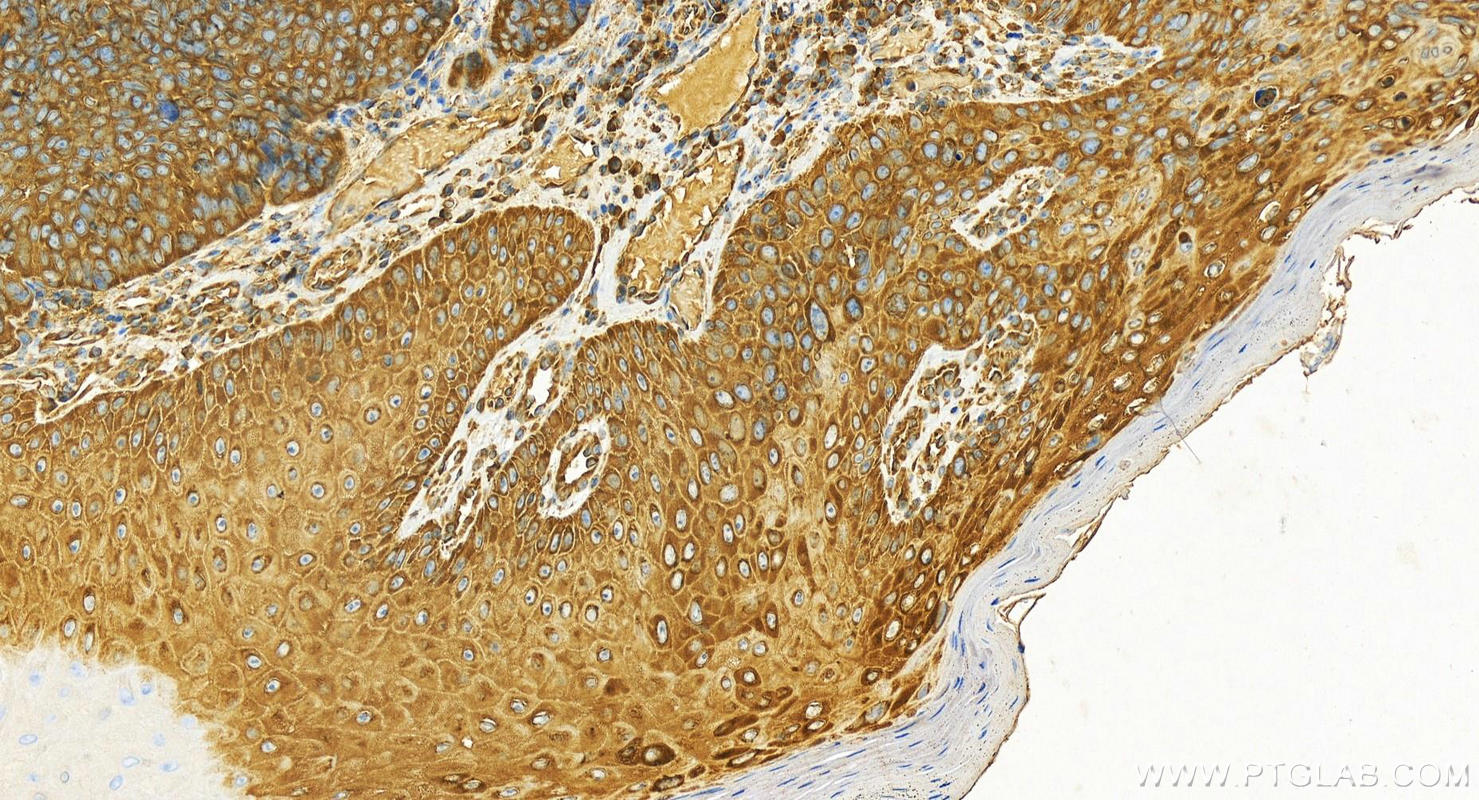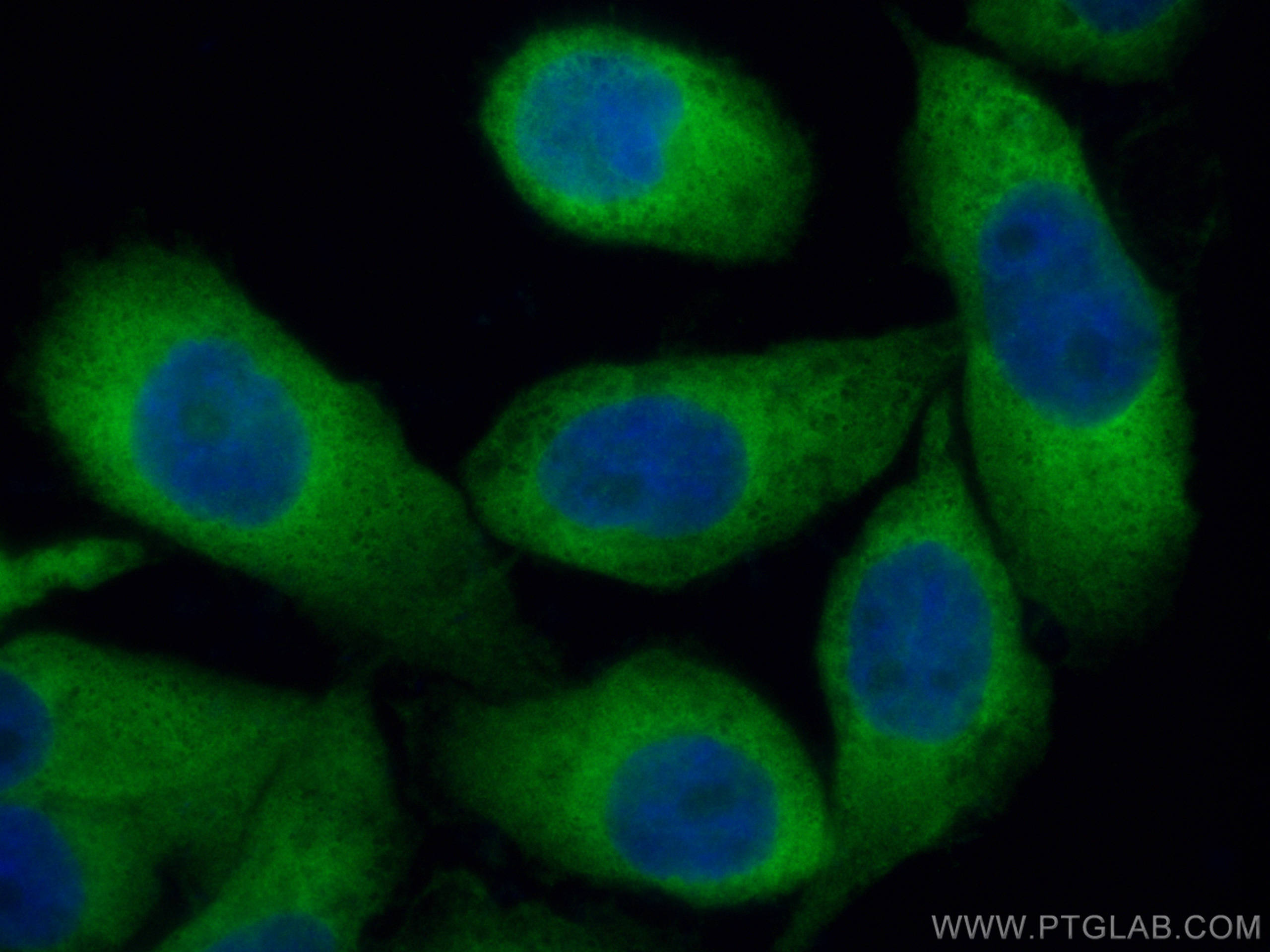- Featured Product
- KD/KO Validated
KARS Polyklonaler Antikörper
KARS Polyklonal Antikörper für WB, IHC, IF/ICC, ELISA
Wirt / Isotyp
Kaninchen / IgG
Getestete Reaktivität
human und mehr (2)
Anwendung
WB, IHC, IF/ICC, ELISA
Konjugation
Unkonjugiert
Kat-Nr. : 14951-1-AP
Synonyme
Geprüfte Anwendungen
| Erfolgreiche Detektion in WB | HEK-293T-Zellen, HeLa-Zellen, HepG2-Zellen, humanes Kolongewebe, Jurkat-Zellen |
| Erfolgreiche Detektion in IHC | human brown disease Hinweis: Antigendemaskierung mit TE-Puffer pH 9,0 empfohlen. (*) Wahlweise kann die Antigendemaskierung auch mit Citratpuffer pH 6,0 erfolgen. |
| Erfolgreiche Detektion in IF/ICC | A431-Zellen |
Empfohlene Verdünnung
| Anwendung | Verdünnung |
|---|---|
| Western Blot (WB) | WB : 1:1000-1:4000 |
| Immunhistochemie (IHC) | IHC : 1:200-1:800 |
| Immunfluoreszenz (IF)/ICC | IF/ICC : 1:50-1:500 |
| It is recommended that this reagent should be titrated in each testing system to obtain optimal results. | |
| Sample-dependent, check data in validation data gallery | |
Veröffentlichte Anwendungen
| KD/KO | See 1 publications below |
| WB | See 10 publications below |
| IF | See 3 publications below |
Produktinformation
14951-1-AP bindet in WB, IHC, IF/ICC, ELISA KARS und zeigt Reaktivität mit human
| Getestete Reaktivität | human |
| In Publikationen genannte Reaktivität | human, Maus, Zebrafisch |
| Wirt / Isotyp | Kaninchen / IgG |
| Klonalität | Polyklonal |
| Typ | Antikörper |
| Immunogen | KARS fusion protein Ag6778 |
| Vollständiger Name | lysyl-tRNA synthetase |
| Berechnetes Molekulargewicht | 68 kDa |
| Beobachtetes Molekulargewicht | 68 kDa |
| GenBank-Zugangsnummer | BC004132 |
| Gene symbol | KARS |
| Gene ID (NCBI) | 3735 |
| Konjugation | Unkonjugiert |
| Form | Liquid |
| Reinigungsmethode | Antigen-Affinitätsreinigung |
| Lagerungspuffer | PBS with 0.02% sodium azide and 50% glycerol |
| Lagerungsbedingungen | Bei -20°C lagern. Nach dem Versand ein Jahr lang stabil Aliquotieren ist bei -20oC Lagerung nicht notwendig. 20ul Größen enthalten 0,1% BSA. |
Hintergrundinformationen
KARS (lysyl-tRNA synthetase) is a gene that encodes an enzyme critical for protein synthesis, specifically responsible for attaching the amino acid lysine to its corresponding transfer RNA (tRNA) in both the cytoplasm and mitochondria. This enzyme plays a crucial role in the process of aminoacylation, which is essential for accurate protein translation from mRNA sequences. Mutations in the KARS gene have been associated with a variety of neurological and systemic disorders, reflecting the enzyme's importance in cellular function.
Protokolle
| PRODUKTSPEZIFISCHE PROTOKOLLE | |
|---|---|
| WB protocol for KARS antibody 14951-1-AP | Protokoll herunterladen |
| IHC protocol for KARS antibody 14951-1-AP | Protokoll herunterladenl |
| IF protocol for KARS antibody 14951-1-AP | Protokoll herunterladen |
| STANDARD-PROTOKOLLE | |
|---|---|
| Klicken Sie hier, um unsere Standardprotokolle anzuzeigen |
Publikationen
| Species | Application | Title |
|---|---|---|
Mol Cell A methyltransferase-independent role for METTL1 in tRNA aminoacylation and oncogenic transformation | ||
Sci Adv Lysyl-tRNA synthetase produces diadenosine tetraphosphate to curb STING-dependent inflammation. | ||
Nucleic Acids Res Deletion of Mtu1 (Trmu) in zebrafish revealed the essential role of tRNA modification in mitochondrial biogenesis and hearing function. | ||
Nucleic Acids Res Regulation of ex-translational activities is the primary function of the multi-tRNA synthetase complex. | ||
Cell Chem Biol Novel RNA-Affinity Proteogenomics Dissects Tumor Heterogeneity for Revealing Personalized Markers in Precision Prognosis of Cancer. | ||
Hum Mutat Inhibition of mitochondrial translation in fibroblasts from a patient expressing the KARS p.(Pro228Leu) variant and presenting with sensorineural deafness, developmental delay, and lactic acidosis. |
Rezensionen
The reviews below have been submitted by verified Proteintech customers who received an incentive for providing their feedback.
FH Kishor (Verified Customer) (01-30-2019) | This antibody working well against rat liver tissue and human cancer cells
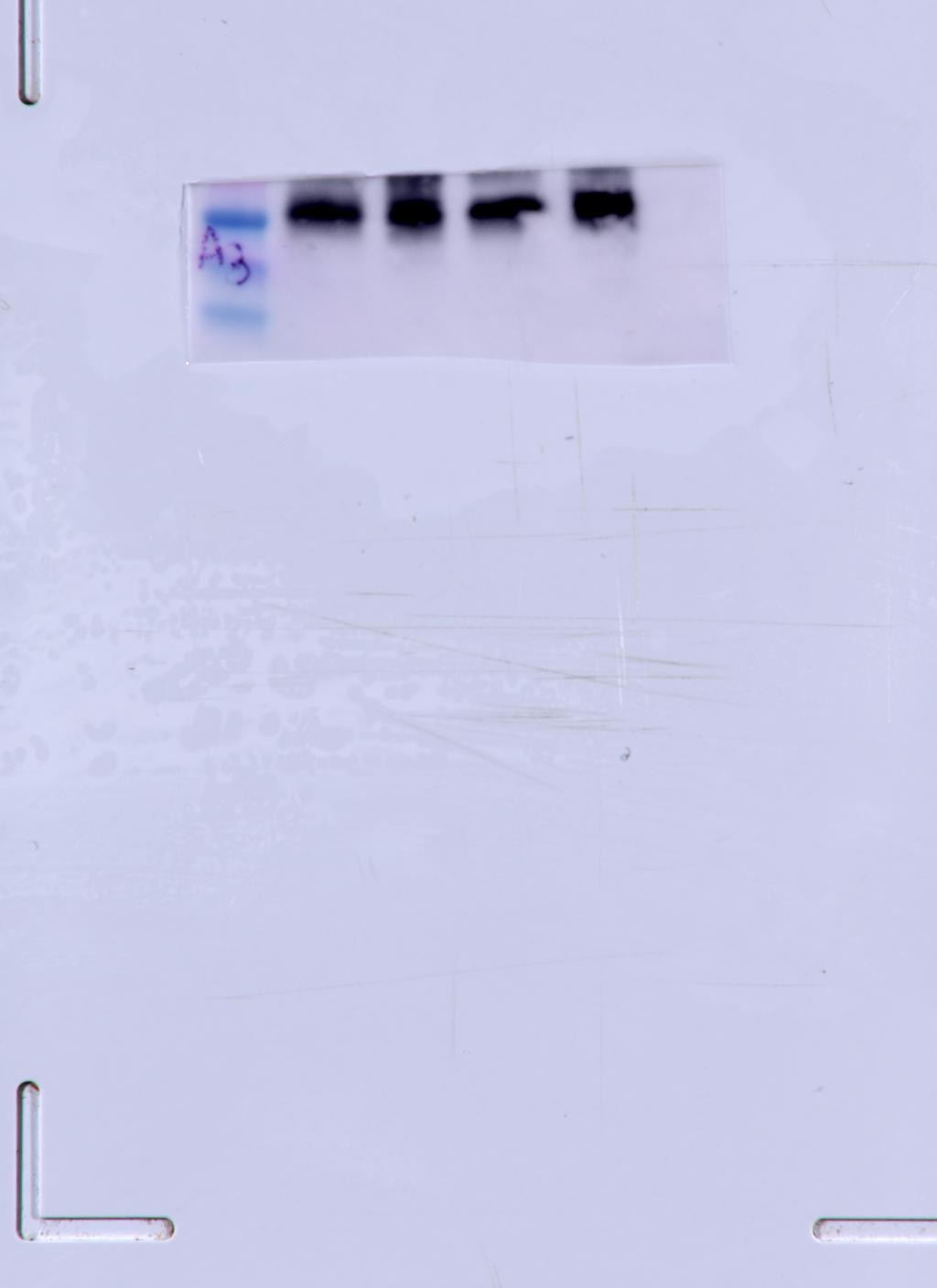 |
